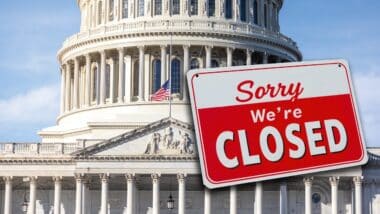 Collection Bureau of Hudson Valley Inc. is facing a new FDCPA lawsuit from a New York man alleging the company had conducted abusive and intimidating debt collection tactics. The FDCPA lawsuit alleges the man had received numerous unwanted phone calls from Hudson Valley, trying to collect on an alleged debt.
Collection Bureau of Hudson Valley Inc. is facing a new FDCPA lawsuit from a New York man alleging the company had conducted abusive and intimidating debt collection tactics. The FDCPA lawsuit alleges the man had received numerous unwanted phone calls from Hudson Valley, trying to collect on an alleged debt.
Plaintiff Akil G. had filed the FDCPA lawsuit claiming the Hudson Valley collection company had violated state debt collection laws when making these phone calls. According to the FDCPA lawsuit, Akil reportedly received calls to his cellphone from different representatives in September 2016, with the company trying to collect an Optimum cable debt.
Overview of FDCPA Lawsuit
The FDCPA lawsuit includes details from Akil’s records of the phone calls, indicating the phone number used to place calls to Akil’s cellphone belonged to Collection Bureau of Hudson Valley.
Akil had reportedly spoke to a representative of the company on Sept. 3, 2016, requesting the debt collection company stop calling him. However, the company allegedly ignored the request and continued to call Akil. In addition, Akil also tried to block the company’s calls by downloading a call blocking application.
During these phone calls, the company allegedly threatened to garnish Akil’s wages if he did not pay the bill, and would also interfere with his business calls at work. While the defendant argued there was no intention of actually taking this action, it is still considered an aggressive and manipulative payment collection tactic.
Collection Bureau of Hudson Valley also allegedly failed to send any notification to Akil, informing him of his rights regarding the FDCPA. The Fair Debt Collection Practices Act (FDCPA) was passed by Congress in 1978, to help protect consumers against unfair and aggressive debt collection practices.
While debt collection is legal, the FDCPA prevents debt collection companies or collectors from using certain abusive collection tactics. In addition, the FDCPA also enables consumers to combat the validity of the alleged debts.
Under the FDCPA, a debt collector is described as anyone who collects debts for a collection agency or other companies and must adhere to a strict standard of conduct when placing these calls. New York is one of the strictest states for debt collectors to operate in, especially when the state government released new regulations debt collectors must follow.
Under New York’s debt collection laws, debt collects are obligated to inform consumers if a debt the company is trying to collect has expired. In addition, New York FDCPA regulations prevent debt collection companies from abusive or intimidating tactics to collect debts including:
- Sending confusing letters
- Communicating with third parties regarding debts
- Making Threats
- Harassment
- Adding fees and collection charges to the debt
- Calling too often and at inconvenient times
- Placing robo-calls
- Collecting expired debts
The company’s alleged conduct violates the Federal Debt Collection Practices Act, which is supposed to help protect consumers against aggressive debt collection practices.
Akil is filing this FDCPA lawsuit against Collection Bureau of Hudson Valley Inc., seeking damages for each call allegedly placed to his cellphone. Each of these violations could amount to $1,000 per call, along with any actual damage the claimant may have suffered.
This FDCPA Lawsuit is Case No. 1:17-cv-06287, in the U.S. District Court for the Southern District of New York.
Join a Free New York Unfair Debt Collection Class Action Lawsuit Investigation
If you live in New York and a lender or debt collector engaged in unfair debt collection practices, you may have a legal claim and could be owed compensation for violations of the Fair Debt Collection Practices Act (FDCPA).
DISCLAIMER: Debt collection itself is not illegal. However, debt collection firms collecting on consumer debts must adhere to the FDCPA. Even though debt attorneys are investigating these companies, their debt collection practices may be legal.
ATTORNEY ADVERTISING
Top Class Actions is a Proud Member of the American Bar Association
LEGAL INFORMATION IS NOT LEGAL ADVICE
Top Class Actions Legal Statement
©2008 – 2025 Top Class Actions® LLC
Various Trademarks held by their respective owners
This website is not intended for viewing or usage by European Union citizens.














